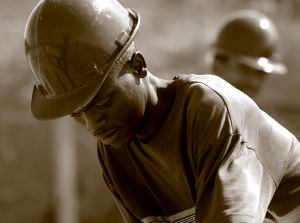 Florida’s liability law and workers’ compensation systems are cautious about awarding benefits for mental and nervous injuries. The underlying basis for the caution is that allowing recovery for injuries resulting from purely emotional distress would open the floodgates for fictitious or speculative claims. R.J. v. Humana of Florida, Inc., 652 So.2d 360 (Fla.1995).
Florida’s liability law and workers’ compensation systems are cautious about awarding benefits for mental and nervous injuries. The underlying basis for the caution is that allowing recovery for injuries resulting from purely emotional distress would open the floodgates for fictitious or speculative claims. R.J. v. Humana of Florida, Inc., 652 So.2d 360 (Fla.1995).
What has come to be known as the “Impact Rule” requires that “before a plaintiff can recover damages for emotional distress caused by the negligence of another, the emotional distress suffered must flow from physical injuries the plaintiff sustained in an impact.'” See Southern Baptist Hosp. of Fla. v. Welker, 908 So.2d 317 (Fla.2005).
The rule is applied in common law personal injury cases and in workers’ compensation cases.
Limited exceptions to the Impact Rule apply in both fields. The common law exceptions have been created by the Florida Supreme Court. See, e.g., Eastern Airlines, Inc. v. King, 557 So.2d 574 (Fla.1990) (recognizing the tort of intentional infliction of emotional distress absent impact); Champion v. Gray, 478 So.2d 17 (Fla.1985) (allowing recovery where plaintiff is in the “sensory perception” of physical injuries sustained by a close family member); Kush v. Lloyd, 616 So.2d 415 (Fla.1992) (finding rule inapplicable to actions for wrongful birth); Tanner v. Hartog, 696 So.2d 705 (Fla.1997) (impact rule does not preclude recovery of non-economic damages for parents of stillborn child); Gracey v. Eaker (impact rule inapplicable for breach of statutory duty of confidentiality to patient); Rowell v. Holt, 850 So.2d 474 (Fla.2003) (impact rule does not preclude recovery for psychological injury due to attorney’s negligence).
In short, “[e]xceptions to the rule have been narrowly created and defined in a certain very narrow class of cases in which the foreseeability and gravity of the emotional injury involved, and lack of countervailing policy concerns, have surmounted the policy rationale undergirding application of the impact rule.” Id. at 478.
Compare these close-call cases: R.J. v. Humana of Florida, Inc., 652 So.2d 360 (Fla. 1995) (impact rule applies to negligent HIV diagnosis without physical damage), Woodard v. Jupiter Christian School, Inc., 913 So.2d 1188 (Fla. 2005) (impact rule applies to outing student’s homosexuality).
Continue reading
 Our client, a construction site supervisor, was injured off-premises at the end of his lunch break. The beginning and end of lunch were signaled by a loud horn. He and his brother traveled by car to a nearby 7-11 to purchase lunch items. They returned to the area near the worksite to eat lunch in the parked car. When the return-to-work horn sounded, our client went to the trunk of his car to retrieve his hard hat and safety harness. As he was standing there, the car behind him was struck from behind by another vehicle and pushed into him, causing him to be crushed between that vehicle and his own. He sustained significant injuries requiring a one-week stay in Ryder Trauma Center in Miami.
Our client, a construction site supervisor, was injured off-premises at the end of his lunch break. The beginning and end of lunch were signaled by a loud horn. He and his brother traveled by car to a nearby 7-11 to purchase lunch items. They returned to the area near the worksite to eat lunch in the parked car. When the return-to-work horn sounded, our client went to the trunk of his car to retrieve his hard hat and safety harness. As he was standing there, the car behind him was struck from behind by another vehicle and pushed into him, causing him to be crushed between that vehicle and his own. He sustained significant injuries requiring a one-week stay in Ryder Trauma Center in Miami. Florida Injury Attorney Blawg
Florida Injury Attorney Blawg









